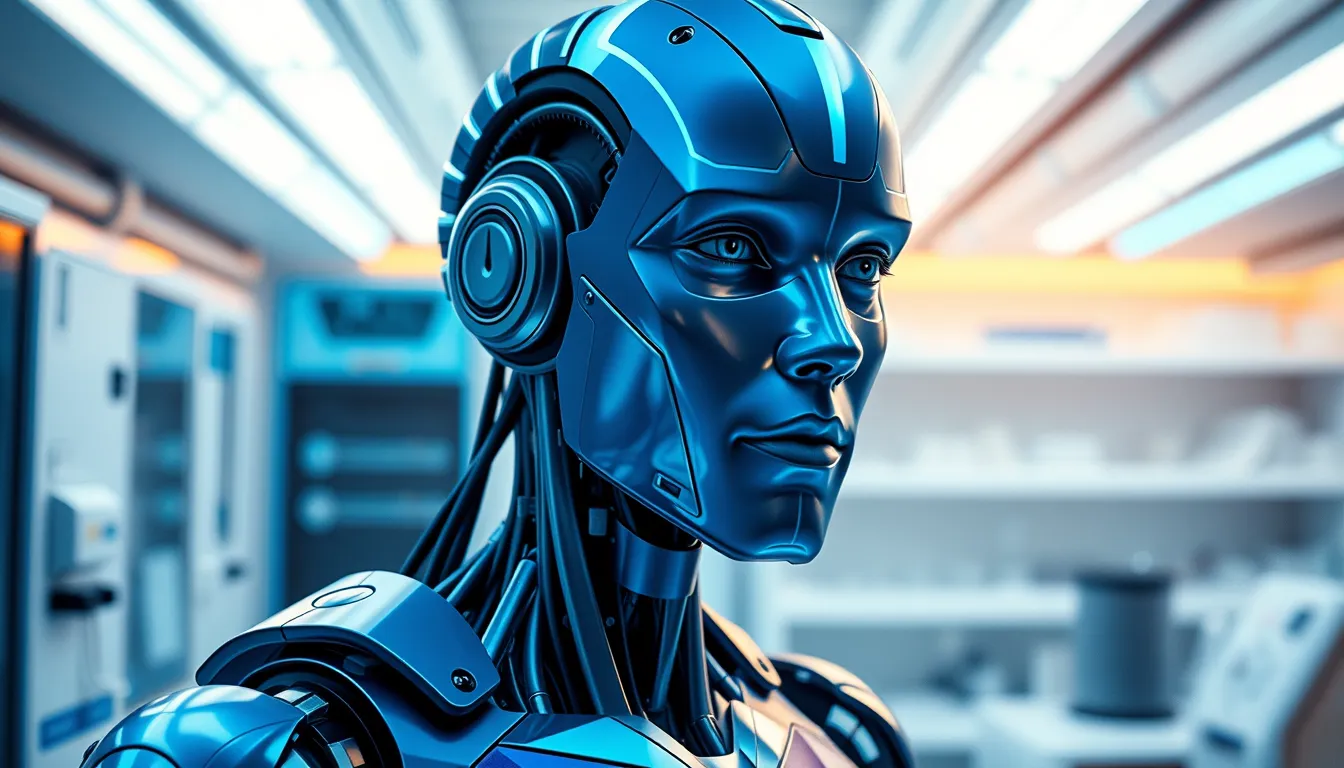Now Reading: Innovative AI in Healthcare Diagnostics: Revolutionizing Medical Imaging
-
01
Innovative AI in Healthcare Diagnostics: Revolutionizing Medical Imaging
Innovative AI in Healthcare Diagnostics: Revolutionizing Medical Imaging

Innovative AI in Healthcare Diagnostics: Revolutionizing Medical Imaging
In today’s rapidly evolving medical landscape, innovative AI in healthcare diagnostics is at the forefront of transforming patient care. With advancements in machine learning and deep learning technologies, healthcare professionals are now equipped to deliver more accurate diagnoses and personalized treatment options. This article delves into the benefits, challenges, and future directions of AI in healthcare diagnostics.
The Rise of AI in Healthcare Diagnostics
Healthcare is embracing the digital revolution, and innovative AI in healthcare diagnostics plays a pivotal role. The technology is revolutionizing medical imaging by offering tools that improve diagnostic accuracy and reduce human error. Modern AI systems can analyze complex datasets and detect patterns in imaging studies that might be overlooked by the human eye. As AI technology continues to evolve, it offers promising potential to enhance patient outcomes.
How AI Improves Diagnostic Accuracy
One of the most powerful benefits of AI in healthcare diagnostics is its ability to improve diagnostic accuracy. Several factors contribute to this improvement:
- Enhanced Image Analysis: AI algorithms can process medical images rapidly, identifying subtle differences in tissues and abnormalities.
- Early Disease Detection: By recognizing early indicators of disease, AI systems enable timely intervention, which is crucial for conditions like cancer.
- Data Integration: AI integrates data from various tests and imaging modalities, offering a comprehensive review that can lead to a more precise diagnosis.
The accurate detection offered by these systems not only speeds up the diagnostic process but also provides a second opinion for radiologists and medical professionals. Institutions like the American College of Radiology are increasingly integrating these technologies in their workflows.
Key Technologies and Advancements
Various tools and algorithms are at the core of innovative AI in healthcare diagnostics. Notable advancements include:
- Machine Learning Algorithms: These algorithms refine themselves by learning from large datasets, improving precision over time.
- Neural Networks: Particularly useful in processing medical images, neural networks can classify patterns that indicate disease.
- Natural Language Processing (NLP): NLP aids in synthesizing unstructured data from clinical notes and reports to complement imaging diagnostics.
Such breakthroughs have made AI indispensable for modern medical imaging solutions. For instance, companies like OpenAI and Google are collaborating with healthcare institutions to innovate these technologies further.
Challenges and Considerations
Despite its tremendous potential, innovative AI in healthcare diagnostics faces several challenges. These include:
- Data Privacy: Handling sensitive patient data requires strict adherence to privacy regulations such as HIPAA in the United States.
- Integration with Current Systems: Merging new AI technologies with legacy healthcare systems can be complex and resource-intensive.
- Regulatory Hurdles: As with many emerging technologies, ensuring that AI systems comply with medical regulations is crucial to their deployment.
Healthcare providers must address these issues carefully to fully harness the benefits of AI. Continuous testing and validation of AI systems are essential to maintain safety and reliability.
Future Outlook of AI in Healthcare Diagnostics
The future of healthcare looks promising with innovative AI in healthcare diagnostics leading the way. As technology improves and becomes more accessible, smaller clinics and hospitals will be able to integrate these solutions into their practices. Trends to watch include:
- Increased Personalization: AI will enable more personalized treatment plans by tailoring diagnostics to individual patient profiles.
- Improved Workflow Efficiency: Automation of routine diagnostic tasks will free up professionals to focus on complex decision-making.
- Enhanced Telemedicine Integration: With increasing adoption of digital health solutions, AI-powered diagnostics will become a key component of remote healthcare services.
The continuous refinement of these technologies promises to revolutionize healthcare delivery globally. Researchers and engineers are working relentlessly to address current challenges while expanding the capabilities of these systems.
Conclusion
Innovative AI in healthcare diagnostics is a transformative force reshaping the future of medical imaging and patient care. Its benefits, including improved accuracy, early disease detection, and seamless data integration, make it an invaluable asset in modern medicine. While challenges such as data privacy and system integration remain, the potential for groundbreaking improvements in diagnostic accuracy is clear. Embracing and evolving these technologies will lead to enhanced patient outcomes and a more efficient healthcare system overall.
For further reading on AI advancements and verified case studies, consider exploring resources available on trusted platforms such as the official websites of OpenAI and Google. These organizations continue to invest in research that will define the next era of healthcare diagnostics.
In summary, innovative AI in healthcare diagnostics not only improves medical imaging techniques but also sets the stage for a future where healthcare is more personalized, efficient, and accessible. As the field continues to advance, staying informed and adaptable is key for both healthcare providers and patients alike.

























